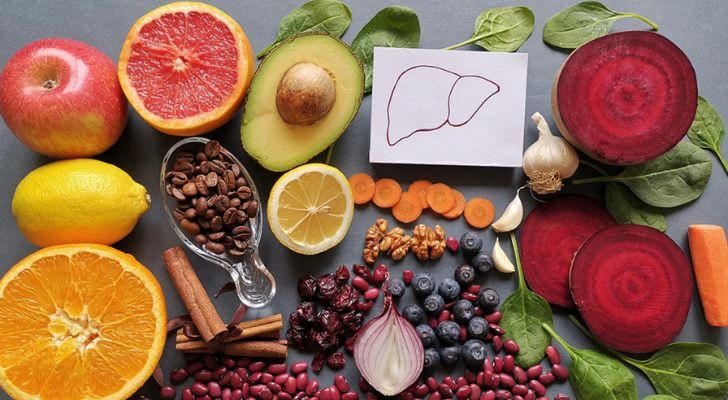Effective Dietary Strategies to Manage Fatty Liver Disease: A Practical 7-Day Food Plan
Fatty liver disease can be reversed with the right diet and lifestyle changes. This article outlines how specific foods affect liver health, presents a detailed 7-day meal plan, explains sustainable habits beyond dieting, highlights the role of nutrition experts, and answers common questions for those seeking practical guidance.

Understanding Fatty Liver Disease and Its Dietary Impact
🔍 What is Fatty Liver Disease?
Fatty liver disease means excessive fat buildup in the liver, often with no early symptoms but potentially leading to serious liver damage. In the US, about one in four adults now shows signs of non-alcoholic fatty liver disease (NAFLD), making this an urgent health concern.
📊 Why Diet Matters:
Sugary foods, refined grains, and processed snacks increase liver fat. When the liver stores more fat than it can handle, inflammation increases and insulin resistance can develop—trapping many in a harmful cycle. On the upside, research shows 5-10% body weight loss and the right nutrition can remarkably reduce liver fat and reverse early-stage NAFLD.
🌱 Key Foods for Liver Health:
- Emphasize vegetables, fruits, legumes, lean proteins, and healthy fats
- Limit saturated fat (red meat, butter) and added sugars
- Choose unsaturated fats (olive oil, fatty fish, nuts) for an anti-inflammatory boost
The 7-Day Meal Plan: Balanced Foods to Support Liver Health
🎯 Jumpstart Your Progress—Sample Meal Structure: Feel free to mix and match favorites!
| Day | Breakfast | Lunch | Dinner | Snack |
|---|---|---|---|---|
| 1 | Oatmeal + mixed berries + walnuts | Veggie salad w/ chickpeas + olive oil vinaigrette | Baked salmon + broccoli + sweet potato | Apple slices + nut butter |
| 2 | Greek yogurt + strawberries + chia seeds | Tuna salad + whole-grain crackers | Chicken stir-fry + brown rice + mixed vegetables | Handful almonds |
| 3 | Spinach smoothie (banana, flaxseed, almond milk) | Grilled chicken salad + mixed greens | Lentil soup + whole wheat toast | Carrot sticks + hummus |
| 4 | Oatmeal + sliced banana + chia seeds | Turkey-avocado wrap (whole-wheat tortilla, lettuce) | Baked chicken + roasted zucchini + onions | Poached pear |
| 5 | Veggie omelet (mushroom, spinach) + whole-wheat toast | Turkey lettuce cups + bell peppers | Quinoa bowl w/ black beans, avocado, salsa | Roasted chickpeas |
| 6 | Savory oats (with poached egg, sautéed spinach, tomato) | Chickpea salad sandwich (whole wheat bread, veggies) | Baked white fish + asparagus + small garden salad | Orange segments |
| 7 | Kale-mango smoothie + almond butter | Spinach salad w/ boiled eggs + almonds | Turkey meatballs + spaghetti squash + tomato sauce | Mixed berries |
✅ Tips: Each meal focuses on plant-forward choices, lean proteins, and smart grains to ease liver workload, keep blood sugar steady, and reduce inflammation.
Building Sustainable Habits Beyond the Meal Plan
⭐ Stay Hydrated:
The liver needs water to flush toxins and process nutrients. A good sign of hydration: pale yellow urine and rarely feeling thirsty.
🏃 Be Physically Active:
Regular activity helps your muscles use blood sugar more efficiently and supports healthy weight loss. The CDC recommends at least 150 minutes a week of moderate activity like brisk walking.
📉 Pace Yourself on Weight Loss:
Dropping 5-10% of current weight can dramatically lower liver fat and improve overall health. Consistency is key—quick fixes rarely last, while steady changes build lifelong results.
How Nutrition Professionals Can Enhance Your Fatty Liver Management
🤝 Expert Support Makes the Journey Easier:
Transitioning from convenience foods to whole-food meals can feel overwhelming. Registered dietitian nutritionists (RDNs) specialize in helping individuals tailor meal plans, grocery lists, and snack ideas that fit everyday routines and preferences.
🏢 Why Get Personalized Guidance?
An RDN will account for your lifestyle—work, family, dining out—and set realistic steps, increasing the odds of lasting change. Plus, many health benefits programs cover these valuable sessions.
Frequently Asked Questions About Diet and Fatty Liver Disease
📢 Can fatty liver be reversed?
Yes! In early stages, the fat can be cleared from your liver, especially with timely lifestyle adjustments. Alcohol-related cases may improve in just weeks by abstaining, while NAFLD typically takes several months with weight loss and targeted nutrition.
📢 Can people with fatty liver eat eggs?
Eggs provide high-quality protein and choline, which supports liver health. Current research is divided, but moderate egg consumption (e.g., a few per week) within a balanced, whole-food diet is usually safe—personalization matters.
📢 What’s the most important first change?
Focusing on more vegetables, limiting sugary foods, and cooking with olive oil can make a big impact quickly. Small daily changes have powerful long-term effects.
Ready to take the first step?
A healthier liver starts with your next meal and the habits you build—there’s support available to help you succeed!
